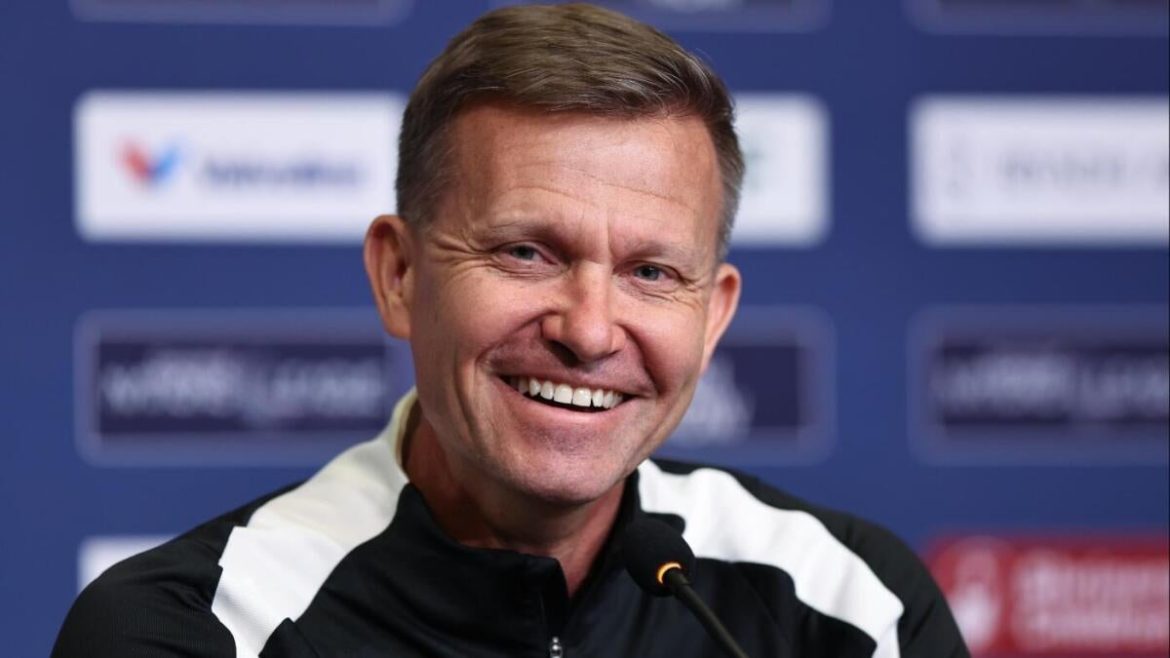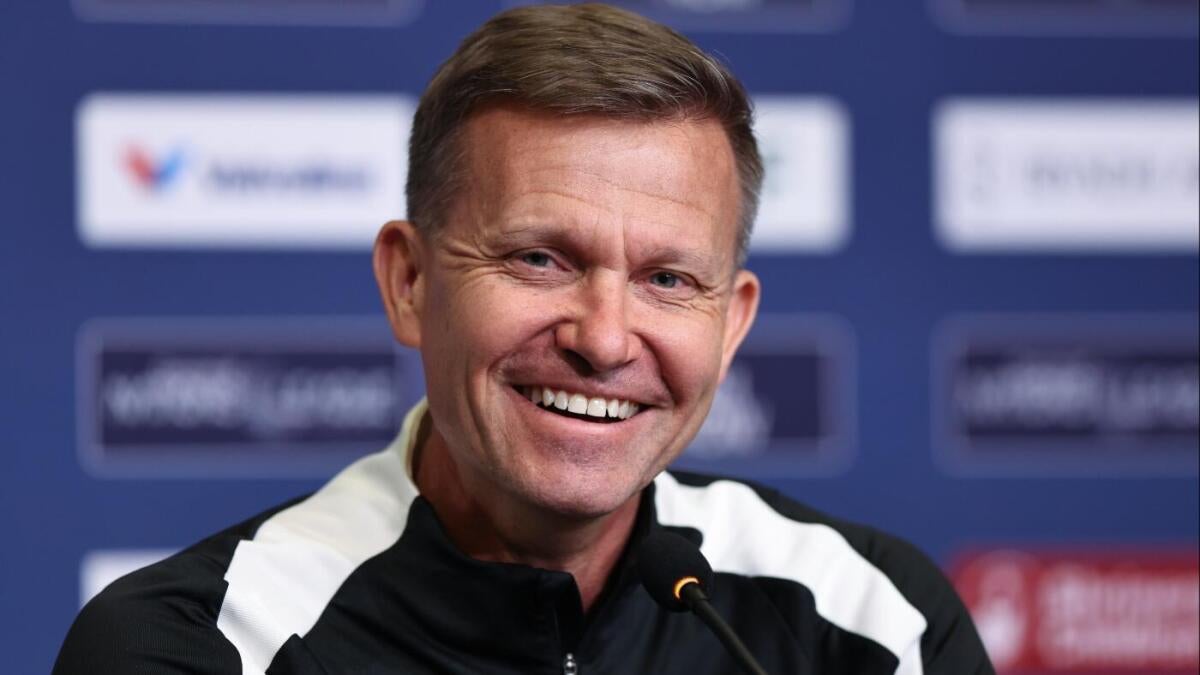Analyzing the Jesse Marsch – USMNT and Christian Pulisic Controversy: A Deep Dive into Leadership, Player Dynamics, and National Team Challenges
The recent swirl of opinions and controversies surrounding the U.S. Men’s National Team (USMNT), its star player Christian Pulisic, and Canadian national team coach Jesse Marsch reveals much about the current state of American soccer — both on and off the field. At the heart of the debate are questions of player availability, leadership decisions, squad management, and the future trajectory of the USMNT ahead of major international competitions such as the 2026 World Cup and the 2024 Gold Cup. Within this complex web, Marsch’s pointed remarks and Pulisic’s responses serve as focal points, underscoring broader tensions in soccer governance, player welfare, and national expectations.
—
Contextual Background: Pulisic’s Opt-Out and Marsch’s Subtle Jabs
Christian Pulisic’s request to skip the summer Gold Cup call-up has ignited significant chatter. Pulisic, a marquee player for both the USMNT and his club AC Milan, opted to prioritize rest and preparation, asking for time off the national team during the intense summer schedule. This decision was met with mixed reactions, ranging from understandable player welfare considerations to sharp criticism from former USMNT legends and pundits who viewed the move as shirking national duty during a critical tournament.
Jesse Marsch, currently the head coach of Canada’s men’s national team and a former USMNT player and coaching candidate, has not shied away from weighing in. Reports suggest that Marsch took a “subtle jab” at the USMNT’s squad situation in light of Pulisic’s absence, hinting at a lack of depth, intensity, or discipline within the American team compared to Canada’s rising standards. This comment not only fuels the narrative of USMNT’s internal challenges but highlights Marsch’s critical eye on his former team’s management and culture.
—
Leadership and Coaching Dynamics: Marsch and the USMNT Coaching Search
Jesse Marsch’s involvement in the discussion is particularly notable given his previous candidacy for the USMNT coaching role, a path that ultimately went to Gregg Berhalter. Marsch’s candid reflections reveal dissatisfaction with the US Soccer Federation’s (USSF) treatment of him during the hiring process. This background colors his public critiques, indicating that his comments about USMNT’s “lack of discipline” and other squad shortcomings come from a place of intimate knowledge and vested interest in American soccer’s success.
Berhalter’s tenure, now coming under further scrutiny post-World Cup and ahead of contractual decisions, is questioned for creating too comfortable an environment for players, potentially stunting growth and accountability. Marsch’s criticisms suggest a desire for a tougher, more competitive culture that could close the gap with regional rivals like Canada, who under Marsch’s leadership, are showing improved intensity and team identity.
—
Player Dynamics and Public Reactions: Pulisic’s Battles On and Off the Field
Christian Pulisic occupies a complex role as both a critical player and a lightning rod for media and fan scrutiny. Following his decision to step back from summer tournaments, Pulisic faced a barrage of criticism from past USMNT greats, including landon Donovan, Clint Dempsey, and others. These veterans questioned his commitment, drawing controversial parallels to previous US players who took breaks and faced consequences.
However, Pulisic did not remain silent. He publicly fired back, declaring the criticisms “way out of line,” and underscored his intent to optimize longevity and effectiveness for the upcoming 2026 World Cup hosted in the U.S. Pulisic’s stance raises important questions about player health, career management, and the evolving professional demands that international soccer places on its stars.
—
The Broader Implications: USMNT’s Squad Composition and Competitive Edge
Underlying these interpersonal and managerial conflicts is a larger issue regarding the USMNT squad depth and development strategy. Marsch’s jabs and the ongoing debate highlight perceived vulnerabilities: a potential overreliance on a few marquee players, inconsistent discipline and intensity on the field, and challenges in forging a cohesive, resilient team culture.
Canada’s marked improvement under Marsch, alongside sporadic USMNT struggles evidenced by dismal exits from recent tournaments, offers a stark contrast and a potential wake-up call. The Canadian coach’s pointed remarks about identity and intensity underscore the importance of cultivating mental toughness and accountability, not merely talent, to compete on the international stage.
—
The Player-Coach Relationship in Modern Soccer
The interplay between Pulisic’s decisions and Marsch’s critiques crystallizes a modern dilemma: how do national teams manage star players’ personal needs and professional longevity without compromising collective identity and preparedness? The USMNT saga reflects broader trends in world soccer, where clubs often dominate player priorities, and national teams must balance competitive ambitions with player burnout risks.
Mauricio Pochettino’s defense of Pulisic’s rest and his strategy to build team chemistry around an evolving squad further complicates the narrative. It suggests a progressive approach valuing holistic player management even if that means temporarily sidelining established stars for longer-term gains.
—
Conclusion: Navigating the Complex Terrain of USMNT’s Immediate Future
The ongoing drama involving Jesse Marsch’s critiques, Christian Pulisic’s call for rest, and the USMNT’s fluctuating fortunes paints a vivid picture of a national program at a crossroads. Success in the next few years hinges on reconciling competing interests: fostering a disciplined, high-intensity team culture while accommodating players’ legitimate health and career concerns; finding coaching leadership that combines tactical innovation with psychological rigor; and building depth and identity ahead of the 2026 World Cup.
Marsch’s blunt observations, Pulisic’s firm stance, and the critical responses from former USMNT icons together highlight the nuanced tensions shaping American soccer’s evolution. How this narrative unfolds will not only define the USMNT’s competitive prospects but also set a precedent for managing player power and national team cohesion in modern soccer.
—





